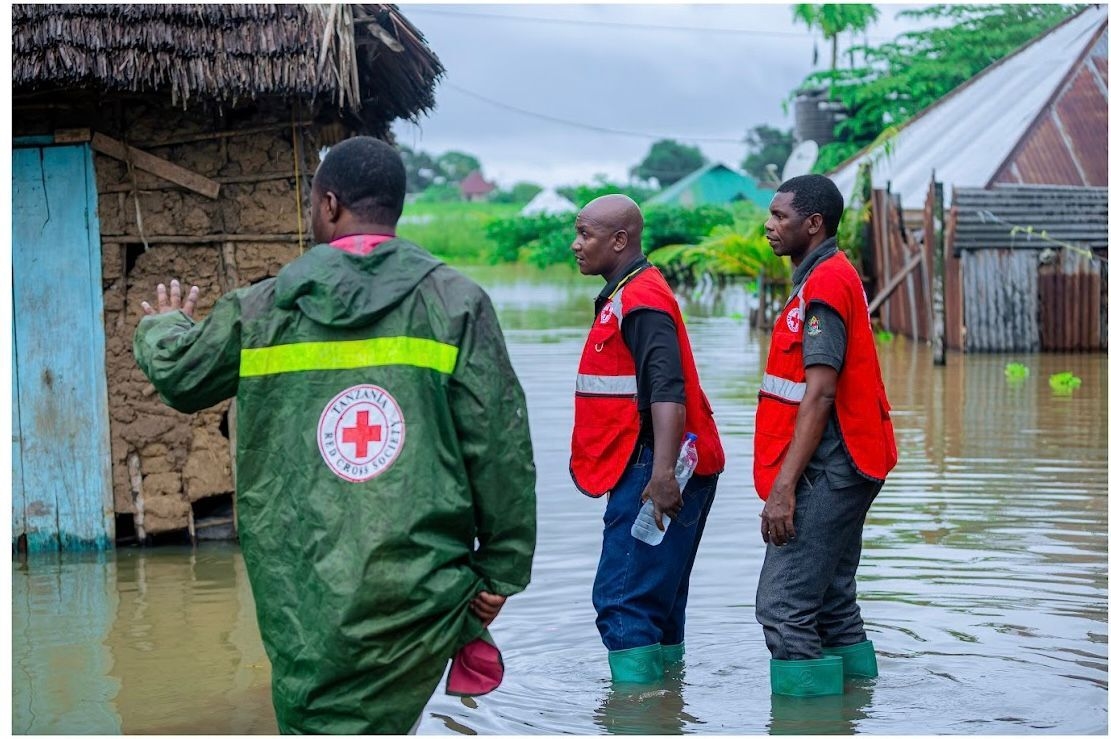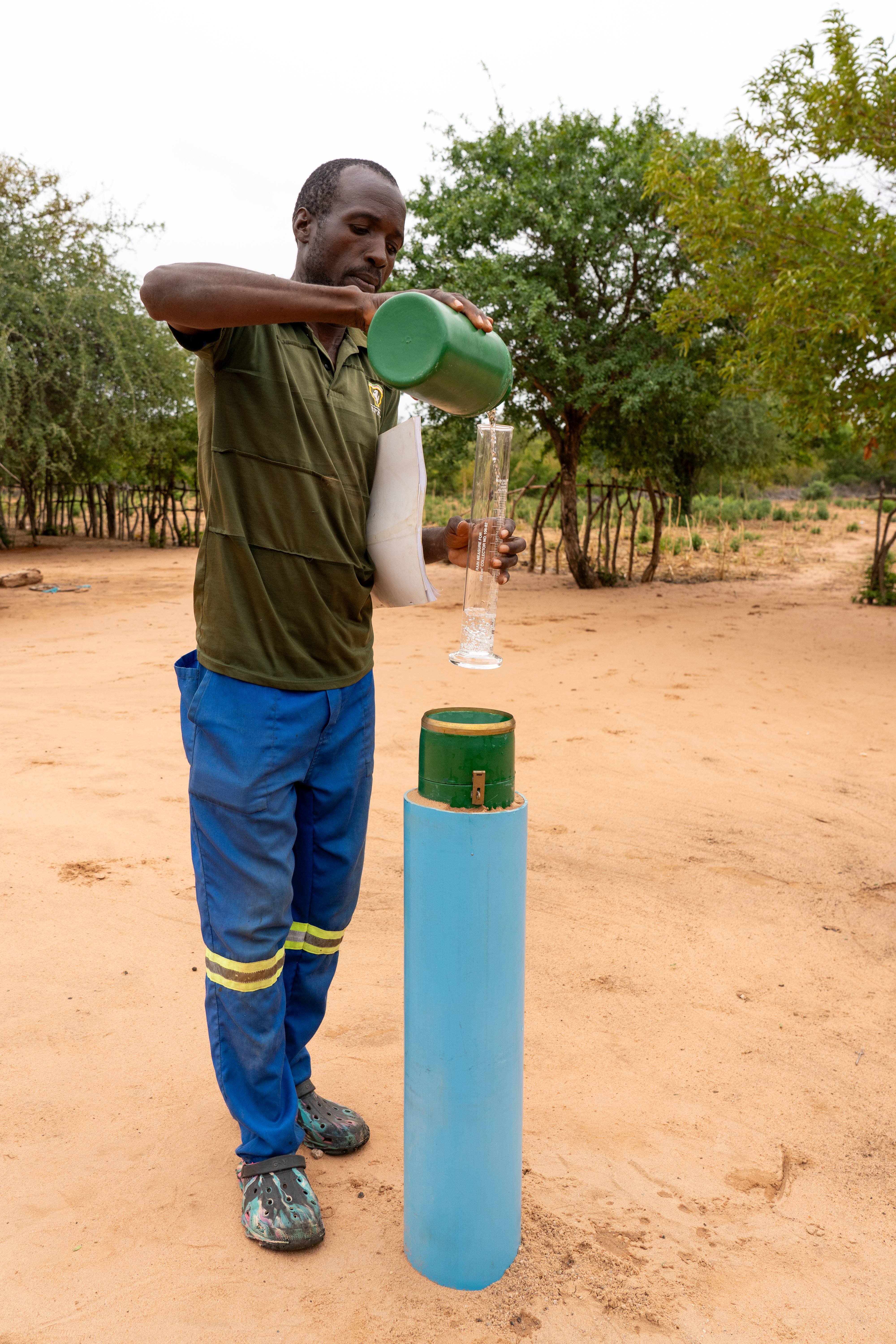Advancing Early Warning and Early Action: A Community-centred Approach by the Finnish Red Cross
In a rapidly changing world where climate shifts amplify natural hazards, the Finnish Red Cross stresses the critical role of early warning systems (EWS) leading to early action.
"Many communities across the world have strong local traditions to observe natural signs like plant growth or animal behaviour to predict the weather and systems to alert others," explains Paula Uski, Senior specialist on climate change and disaster risk management of the Finnish Red Cross. "But with climate change causing unpredictable weather patterns and challenging these traditional systems, it is crucial they get better access to scientific weather information, forecasts and warnings.”
Early warning early action (EWEA) means taking steps to act ahead of hazards thanks to weather forecasts, risk communication and preparedness capacities. EWEA systems constitute a vital shift for communities traditionally reliant only on traditional knowledge, now constrained by climate change. However, the Finnish Red Cross understands that beyond the technical challenges of creating reliable EWEA systems, the biggest challenge lies in fostering trust in these systems and ensuring access to information for all.
For communities to rely on these systems and act fast following warnings, they must trust in their accuracy and be able to access, understand, and react to the information they receive. Efforts in this area must stand the test of accommodating the unique needs of all EWEA target users and ensuring their meaningful participation at every step.
Rising to the challenge, the Finnish Red Cross collaborates with several National Red Cross Societies and meteorological agencies, including across Nepal, East Africa, and Zimbabwe to raise community awareness of climate risks and EWEA and promoting a ‘whole of society approach’.
Nepal Red Cross Society has a long history in developing community early warning systems. Already 17 years ago, it recognised Nepal’s vulnerability to intense climatic events and started working alongside partners like the Red Cross Red Crescent Climate Centre and the Department of Hydrology and Meteorology (DHM), to develop robust community early warning systems. Supported by the Finnish Red Cross and the Finnish Meteorological Institute, they have recently been working towards integrating improved forecast with a multi-hazard approach and ensuring that forecasts and warnings are accessible (trusted, appropriate and useful) and that stakeholders (communities and authorities) have capacities to make decisions and implement early actions based on these. Together with all these partners, the Nepal Red Cross Society have launched public awareness campaigns and conducted EWEA assessments, community trainings, and the first ever advisories for extreme weather, cold and heat, events, contributing to the Early Warnings for All initiative..
“The main hazards in Phalelung are landslide, flood, thunderstorm and fire. Any initiatives should address this real context of multiple hazards and focus on the community-centered approach including community awareness on these hazards”, stresses the Chairman of Phalelung rural municipality.
In 2022, building on past collaboration with the Finnish Meteorological Institute, the Finnish Red Cross started a new project with the Kenya Red Cross Society, the Rwanda Red Cross and the Tanzania Red Cross Society focusing on the information flow between meteorological and disaster management agencies and local communities to enable early action. Commissioned studies showed a low level of awareness and reaction to early warnings amongst the population. First, there was a need to understand how people perceive hazards and how early warning systems can be improved from the local perspective in the target areas. Several reasons were found for not taking action even though weather forecast information and warnings would have been available. These are now addressed in the activities.

Local observations and communities’ own warning systems are highly important and should be strengthened. For example, in Tanzania and Rwanda, local weather information is disseminated through various channels relying on existing communication systems such as phone alerts from upstream to downstream communities, ensuring timely warnings about potential floods. In Nepal, inclusive early warning messaging channels are being developed and institutionalised. These channels connect the most marginalised groups to the national EWS which was preciously non-existent.
Similarly, in Zimbabwe, the Finnish Red Cross, with other partners, has supported Zimbabwe Red Cross in anticipatory action and climate smart resilience. This initiative equips communities with skills and tools to mitigate and adapt to climate-related disasters, such as droughts. Through strengthening partnerships with local Red Cross teams and meteorological agency, the aim is to translate forecast data into anticipatory action, such as distributing drought-resistant seeds, and improving the use of local rainfall measurement data.

Dube Munkombwe, Zimbabwe RC volunteer explains his task: “I follow the rain gauge, and then I distribute my findings in community meetings and ward meetings, which we hold monthly – I raise awareness on the issue. I also send the information to local authorities. This information that the rain gauge gives is absolutely critical. Based on this, we have different set of actions.”
Anticipatory action approaches adopted in Zimbabwe have been developed through close community consultation and engagement which have informed both the early actions implemented, and the longer-term interventions aimed at developing community level resilience and addressing the impacts of hazards on the most at risk persons.
Across these regions, the Finnish Red Cross emphasises inclusive approaches, ensuring forecasts are accessible to all community members and planned early actions consider the capacities and needs of all members of the community. Efforts include translating information into local languages, using multiple communication channels and training volunteers to disseminate alerts effectively.
Through its collaborative people-centred and ‘whole of society’ approaches, integrating traditional knowledge with modern technologies and fostering multi-stakeholder engagements, the Finnish Red Cross exemplifies a holistic strategy for EWEA. The experiences in Nepal, East Africa, and Zimbabwe highlight the importance of inclusive community-led approaches in building preparedness and resilience against climate change. In these countries, the key has been in bridging local insights with scientific advancements, bringing actors together, and ensuring meaningful community engagement.
Initiatives like these, championed by the Finnish Red Cross and its partners, pave the way for disaster preparedness and response that leaves no one behind.
Read more about the Finnish Red Cross recommendations for effective EWEA systems in a new (July 2024) policy paper called Why early warnings are not leading to early action: hazard_perception_study_2024.pdf (punainenristi.fi)
Basic information
Activity name
Early Warning and Early Action

